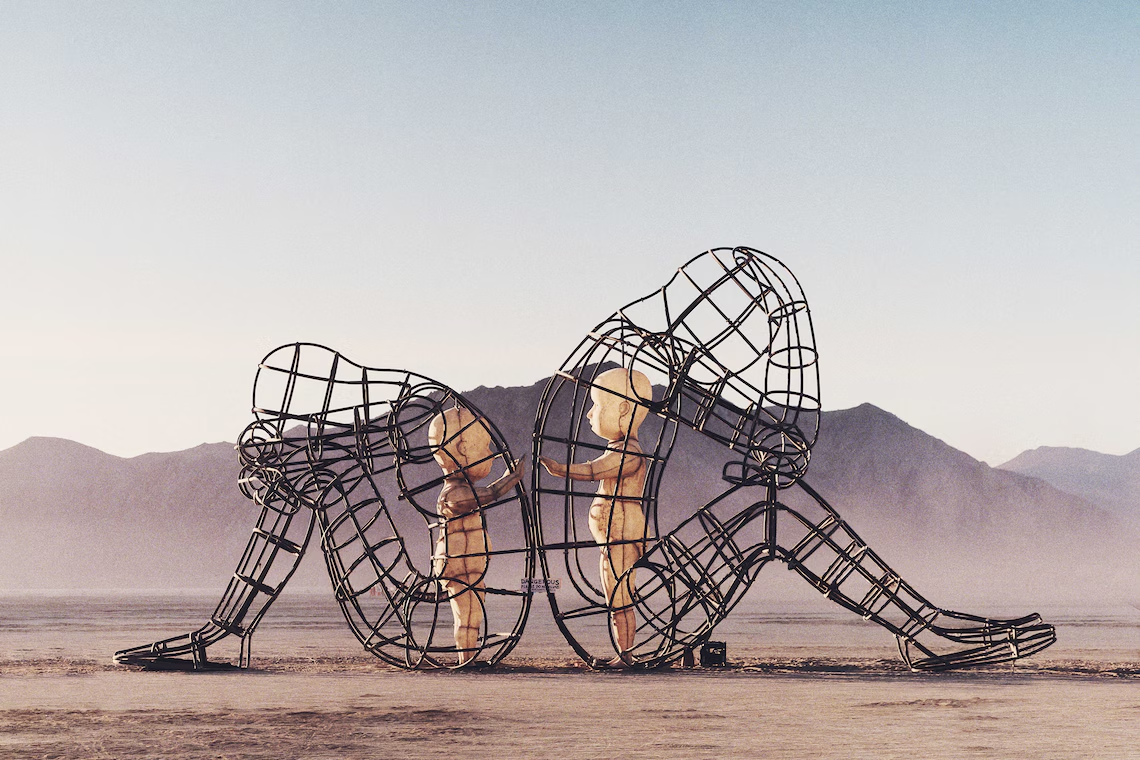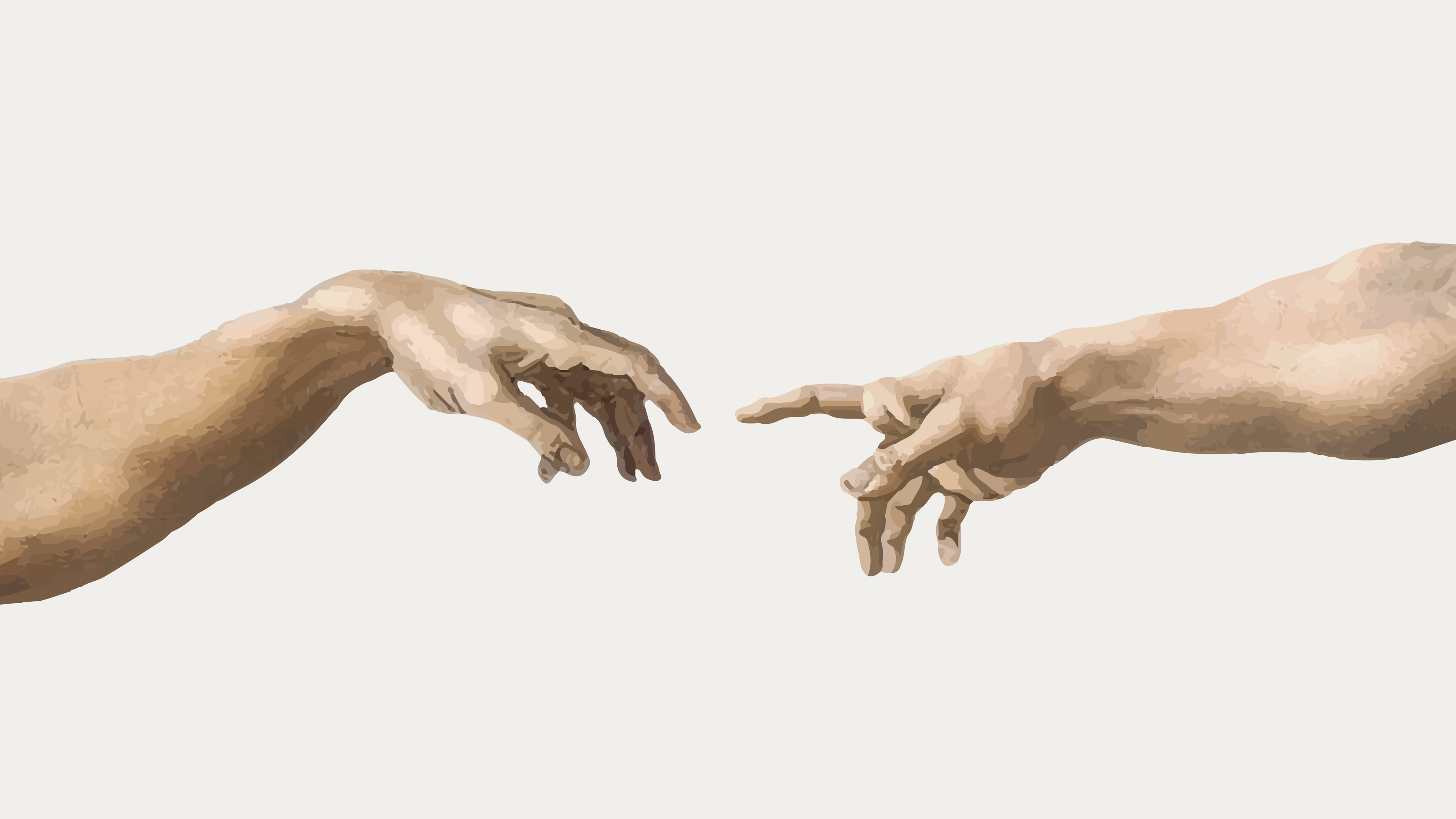
The tears came without warning.
I was perched on a hillside, watching the sun bleed orange across the horizon, when something inside me cracked open.
Not sadness, the opposite.
A lightness I'd never known, like I'd been holding my breath for twenty-two years and finally remembered how to exhale.
The dying light filtered through eucalyptus branches, painting everything golden, and for the first time in my life, the voice in my head wasn't screaming. Instead, it whispered something I'd never heard before: You are enough. You are loved. Exactly as you are.
Life felt so fucking beautiful I couldn't stop smiling.
In that moment, I didn't just feel peace - I felt love. Pure, unconditional, flooding through. Not from another person, but from the deepest part of myself I'd never known existed.
The Monk
For years, I'd been a monk of self-optimization. Daily 1% improvements. Psychedelics wielded like surgical instruments for accelerated growth. I'd eliminated vices, built unshakeable habits, created what looked like a paragon of discipline.
On paper, I was a self-improvement success story.
But beneath all that lived a terrorist.
An inner voice so vicious it turned every achievement into evidence of inadequacy. This thing demanded nothing short of perfection, then savaged me when I inevitably fell short. It wouldn't let me rest, wouldn't let me celebrate, wouldn't let me simply be without constantly demanding I become more.
For years, I was locked in combat with it.
Sometimes I'd surrender, sitting motionless while it carved me apart with criticism. Other times I'd try to drown it out - meditation to rise above the noise, work to exhaust myself into silence.
I convinced myself this voice was my competitive edge. My secret weapon. After all, it had driven me further than most people ever go, hadn't it?
So I let it keep having its way with me. Until I had enough.
Instead of running, I got curious.
I started documenting everything in what I called "reflection tabs"; every single thing I noticed about myself, I wrote down. Over years, I'd built a longitudinal dataset on my own psyche.
Slowly, I started noticing the critic more clearly without immediately turning to distraction. I could hear it operating, see its patterns, but I still couldn't understand why it was so harsh.
The Wounds That Drive Us
To do unconventional things, you need unconventional wounds.
Most entrepreneurs are refugees who never found sanctuary. They flee their old lives, chasing some promised land where everything will finally be better. But really, they're just running from whatever broke them first, dragging their trauma behind them like chains they can't see.
I'd been running for years.
Six months ago, I finally stopped.
I sat in a dimly lit room, 100mg of MDMA working its way through my system.
The familiar alchemy began: warmth spreading through my chest, my nervous system releasing its grip on hypervigilance.
The constant hum of anxiety that had been my soundtrack for decades went quiet.
Love makes curiosity easier, and tonight, I needed all the curiosity I could summon.
Tonight, I wasn't fleeing anymore.
Tonight, I was turning around to face whatever monster had been chasing me through the dark.
The Room Full of Voices
The MDMA quieted the storm in my head, and in that stillness, I could finally see.
I'd expected to confront the critic. But when I looked closer, I realised that he wasn't alone.
What I'd thought was one voice screaming at me was actually just the loudest voice in a room full of voices. There was the critic, yes - stern and relentless at the head of the table. But I could also see others. A little boy who just wanted to be loved. A wild part that craved adventure. A learner endlessly curious about the world.
And me - not any of those voices, but the witness observing them all with something I'd never accessed before: unconditional loving awareness.
I've never understood the multiplicity of mind. It was the missing piece.
What I was seeing had a name: Internal Family Systems. We're not one unified self, but a collection of different parts, each with their own interests and agendas. You know how you can argue with yourself? How part of you wants to work out while another part wants to stay in bed? Those aren't just conflicting thoughts - they're different aspects of your psyche.
In the West, we pathologize multiplicity. If you hear voices, you're mentally ill. But that night, I understood: the goal isn't to become one unified person. It's to become a good leader of all your parts.
So I did what felt impossible before - I spoke to the critic directly, as if he were sitting across from me.
What he told me broke my heart.
He'd been hiding memories from me, memories he thought were too dangerous to feel. Being bullied in primary school, eating lunch alone in the library while other kids played outside. The shame of never fitting in, of being the weird kid who couldn't crack the social code everyone else seemed born knowing.
This voice had been driving me relentlessly because he remembered what happened when I was soft, when I was vulnerable, when I let my guard down. He was determined to ensure I never ended up powerless and alone again.
He'd architected my entire rebellion: rejecting all authority, dropping out of Oxford, never lasting more than six months at any job because being controlled made me feel like that powerless kid all over again.
He'd built my whole life around keeping me safe.
But here's what really tore me up: he didn't want to be a critic.
He was exhausted. When I told him about my life now — how far we'd come, how successful we'd become — he was surprised but happy.
"I don't want to be harsh anymore," he said. "I want to be your cheerleader."
For the first time in my life, I thanked him. I told him how grateful I was for all the work he'd done, all the years he'd protected me. And I promised that from now on, we'd work together.
But even as I made that promise, part of me was terrified.
For a long time, part of me almost didn't want the harshness of this voice to go away. Without the whip, would I still run? It seemed paradoxical; how do you love yourself unconditionally while still reaching for more? I'd convinced myself that cruelty was the price of excellence. That this voice was my edge. That without it, I'd collapse into mediocrity.
The opposite happened.
Home
The next day, everything was different.
I was sitting at my desk procrastinating, and instead of the usual assault—you're lazy, you're worthless, you're behind—I heard something different.
"Hey," the voice says, gently. "What's going on? You seem unmotivated."
I actually stop. Listen. "Yeah, I am having a bad day."
"Okay, let's figure it out together."
Together.
For twenty-two years, this voice had been my prison guard. Now he was my partner.
The drive is still there. Fiercer than ever, actually. But the quality has completely transformed. Where I used to optimize frantically—a man running from his own shadow—now I improve because growth feels beautiful. Like consciousness evolving.
I'm still ambitious, but from curiosity instead of terror. Still disciplined, but as self-expression rather than punishment. The race against time has ended.
My decisions feel clearer because I'm not hearing from just one voice anymore—the panicked overachiever screaming orders. I have access to many parts of me with different goals, and I've realized I want more than just endless optimization and striving. I want a life where all of me gets to participate.
I still want to build something that matters. But I don't need to conquer the world to prove I'm not that weird kid anymore.
Yesterday, walking down the street, I heard that voice from the sunset again: "I love you. You're enough."
I stopped. The tears came like a dam breaking.
I'd spent twenty-two years running from myself, only to discover that what I was searching for had been inside me all along.
The refugee was finally home.

.png)

